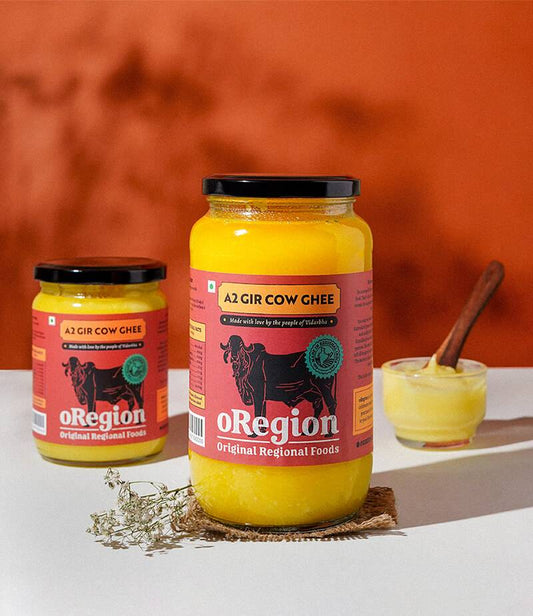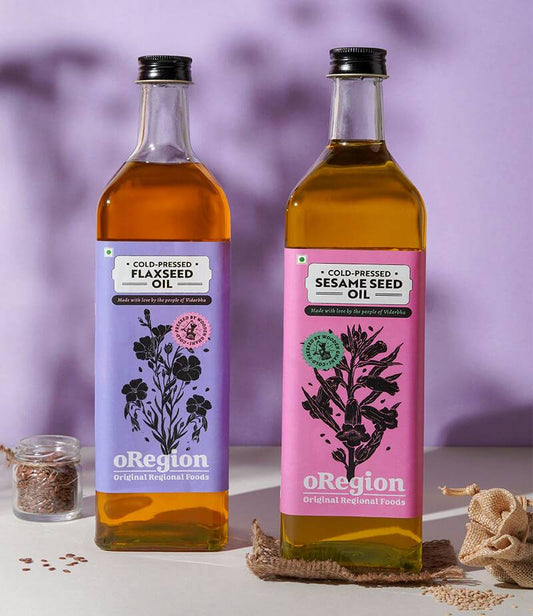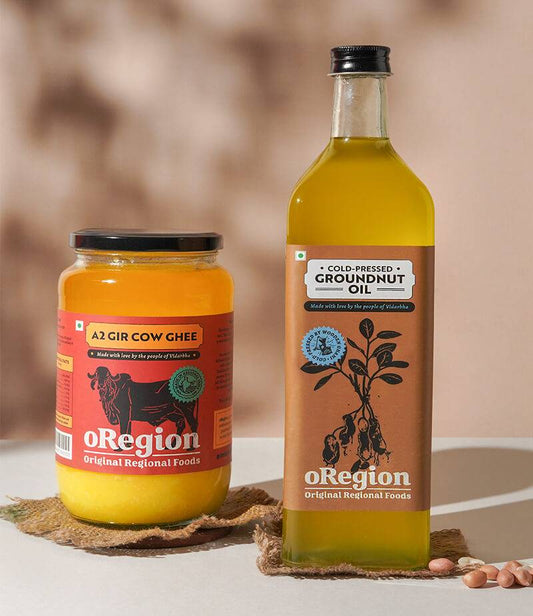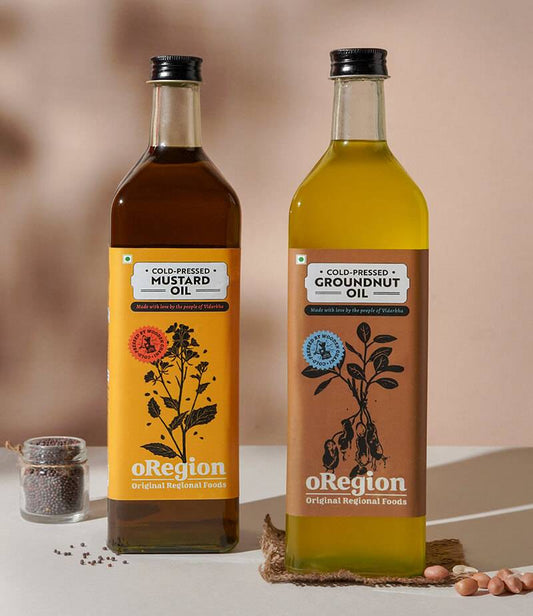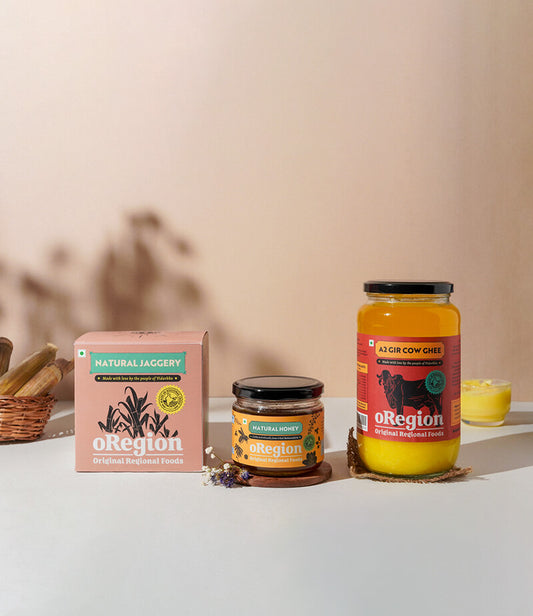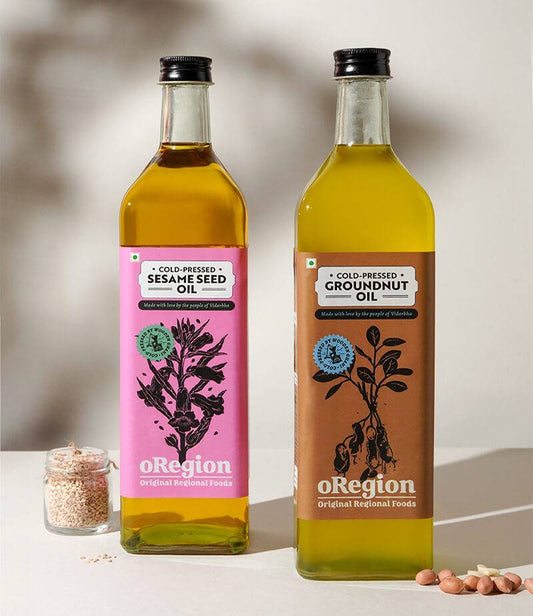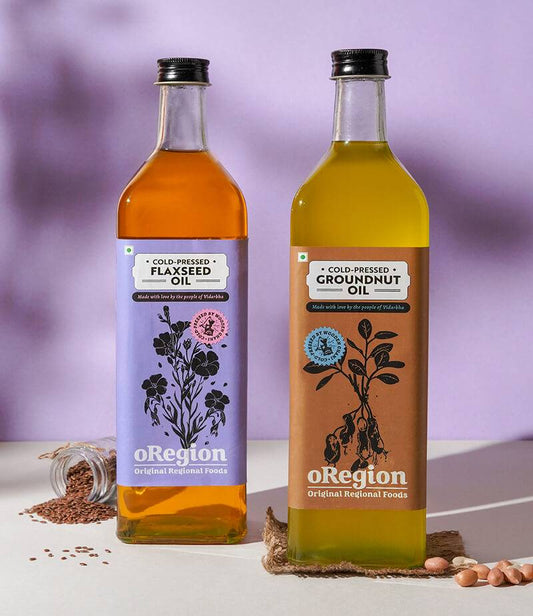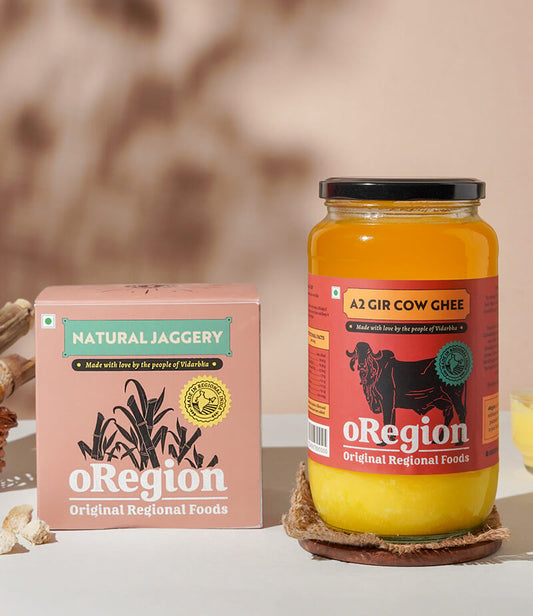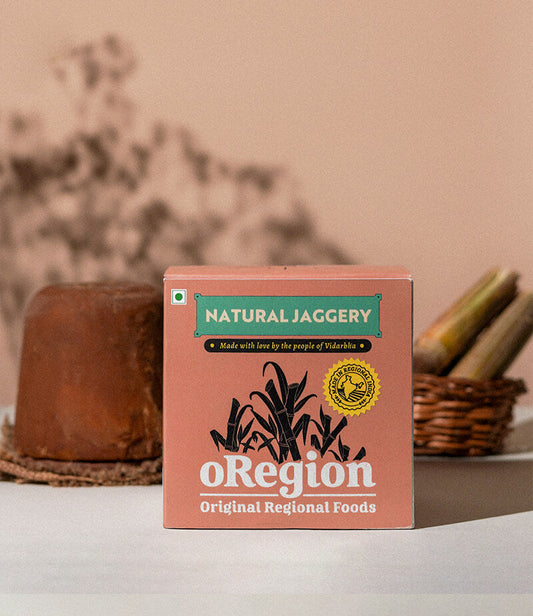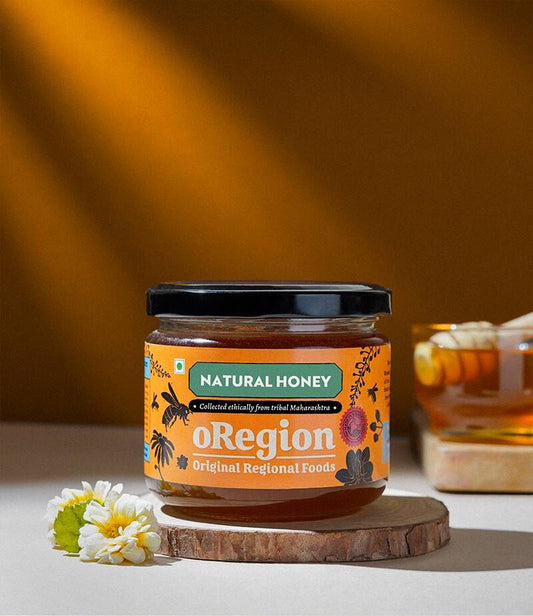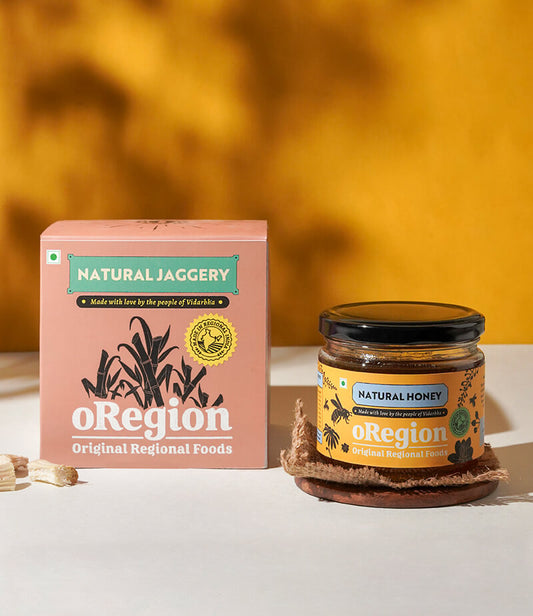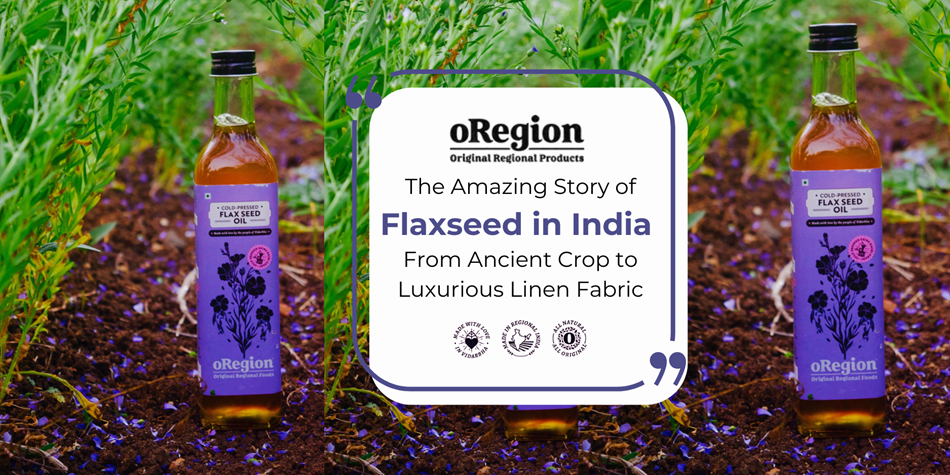
The Amazing Story of Flaxseed in India: From Ancient Crop to Luxurious Linen Fabric
By oregion foodsIndia, with its rich agricultural heritage, has long embraced flaxseed as an ancient and significant crop. Over centuries, this remarkable plant has evolved from being a simple agrarian staple to becoming the source of luxurious linen fabric and a powerful source of health-boosting products. In this article, we delve deep into the journey of flaxseed, its multifaceted uses, cultivation practices, and the vital role it plays in sustainable agriculture.
The Ancient Roots of Flaxseed in India
Flaxseed (Linum usitatissimum), known as Alsi in Hindi, has been cultivated for thousands of years. Evidence of its growth dates back to the earliest civilizations, where it was revered for both its oil-rich seeds and fibrous stems. In ancient India, flax was valued not just for its nutritional profile but also for its utility in making durable textiles. The fabric derived from flax, known as linen, was a prized material due to its strength and natural luster.
Flaxseed: A Multi-Disciplinary Wonder
1. Nutritional and Health Benefits
Flaxseed has earned its reputation as a superfood due to its high Omega-3 Fatty Acid content. This makes it an excellent Omega 3 Supplement and a sought-after ingredient in health and wellness products. Flaxseed oil, particularly cold-pressed, is rich in alpha-linolenic acid (ALA), a type of omega-3 that supports heart health, reduces inflammation, and promotes overall well-being.
2. Uses in Daily Life
Flaxseed's versatility extends beyond its nutritional profile:
-
Dietary Supplement: Used as an Omega 3 Vegan Flaxseed Oil to enhance diets.
-
Hair and Skin Care: The Cold Pressed Flaxseed Oil for Hair offers moisturizing and nourishing benefits.
-
Cooking: It serves as a healthy Olive Oil Alternative and Olive Oil Replacement.
- Traditional Remedies: Known for its therapeutic properties in Ayurvedic medicine.
Importance of Flaxseed to Agriculture
Flax is not just a boon to human health; it is essential for sustainable farming:
|
Aspect |
Details |
|
Water Efficiency |
Flaxseed crop grows in less water compared to many other crops, making it suitable for arid and semi-arid regions. |
|
Soil Health |
The deep-root system of flax crop improves soil structure and fertility, reducing the need for synthetic fertilizers. |
|
Biodiversity |
It attracts pollinators and contributes to a balanced ecosystem, supporting other crops. |
|
Climate Adaptability |
Flax crop can withstand varying climates, making it a resilient option for farmers. |
Flaxseed in Indian Agriculture
India's agricultural landscape benefits significantly from the inclusion of flaxseed as a crop. Here are key points highlighting its importance:
-
Traditional Cultivation Regions: Flaxseed is primarily grown in states like Madhya Pradesh, Chhattisgarh, Uttar Pradesh, and Maharashtra. These regions provide the ideal climate for flax cultivation.
-
Role in Crop Rotation: Flax is often used in crop rotation strategies to enhance soil fertility. It minimizes pest buildup and helps maintain soil health.
-
Sustainability: Farmers in India recognize the value of flax as a low-input crop that requires minimal water and fertilizers, making it cost-effective and environmentally sustainable.
-
Economic Benefits: The cultivation of flaxseed provides farmers with an additional source of income due to its dual-purpose use for oil production and fabric creation.
- Government Initiatives: Indian agricultural policies are increasingly focusing on sustainable practices, promoting crops like flax that contribute to reduced environmental impact and improved soil health.
The Process: From Seed to Luxurious Linen
The transformation from flaxseed to linen fabric is a meticulous process that highlights the ingenuity of traditional practices:
-
Cultivation and Harvesting: Flax is sown during cooler seasons. It thrives in well-drained soil and requires minimal water. The crop reaches maturity in about 100 days, after which it is harvested by pulling the plants from the roots to retain the fiber’s length.
-
Retting: This process involves soaking the stems to break down the pectin, allowing the fibers to separate from the woody core.
-
Scutching and Hackling: The flax fibers are then beaten and combed to remove impurities, resulting in fine strands.
- Spinning and Weaving: The fibers are spun into yarn and woven into linen fabric, known for its breathability, durability, and sheen.
Flaxseed Oil: An Essential Byproduct
Flaxseed oil, or Alsi Ka Tel, is a highly valued product derived from flaxseed:
-
Cold Pressed Flaxseed Oil: Extracted without the use of heat, this method preserves the oil’s nutrient profile, making it the Best Cold Pressed Flaxseed Oil.
-
Health Benefits: Cold pressed flaxseed oil is rich in omega-3 fatty acids, making it a potent Omega 3 Oil and Vegan Omega 3 source.
- Versatile Uses: From culinary applications to topical use for skin and hair care, flaxseed oil is celebrated for its multifunctional benefits.
Benefits of Flaxseed Cultivation for Farmers
-
Economic Resilience: Growing flaxseed offers farmers a reliable crop that can be sold for both oil production and fabric manufacturing.
-
Environmental Impact: Flax cultivation contributes to a reduction in greenhouse gas emissions due to its low water and fertilizer requirements.
- Support for Rural Livelihoods: By integrating flaxseed cultivation, Indian farmers can diversify their agricultural practices and improve their economic stability.
The Specialty of Flaxseed Oil
The oil extracted from flaxseed is a valuable by-product that has gained recognition as one of the best cold-pressed oils available today.
-
Cold Pressed Flaxseed Oil Benefits: Retains nutrients and bioactive compounds due to minimal heat exposure, ensuring that antioxidants and omega-3 content remain intact.
-
How to Use Flaxseed Oil: It can be used in salad dressings, smoothies, or taken directly as a health supplement. For those seeking vegan alternatives, Vegan Flaxseed Oil provides an essential dose of plant-based omega-3s.
- Cold Pressed Flaxseed Oil Price: Despite its premium extraction method, it remains a cost-effective Omega 3 Oil compared to fish oil supplements.
Flaxseed Oil: A Multi-Use Solution
Beyond its use in food, flaxseed oil is lauded for its applications in personal care:
-
Hair Treatments: Known for imparting shine and reducing breakage, Cold Pressed Flaxseed Oil for Hair is often incorporated into natural hair care routines.
-
Skin Care: With its anti-inflammatory properties, flaxseed oil can soothe and hydrate the skin.
- Nutritional Use: Alsi Tel is a popular addition to traditional Indian meals, enhancing flavor while providing health benefits.
Why Flaxseed Stands Out
The importance of flaxseed in India goes beyond its historical roots:
-
Economic Value: The crop offers financial benefits for farmers due to its dual-purpose nature—both seed and fiber yield.
-
Sustainability: Grown with limited resources, flax plays a key role in eco-friendly agriculture.
- Nutritional Powerhouse: Products like Best Cold Pressed Flaxseed Oil and Cold Pressed Flaxseed Oil serve as potent nutritional supplements, supporting various dietary needs.
Conclusion
From being a revered ancient crop to becoming an essential part of modern health and textile industries, flaxseed’s story in India is both fascinating and inspiring. Its multitude of uses—ranging from nutritious Omega 3 Rich Oil to luxurious linen fabric—highlights its unparalleled versatility. For those seeking sustainable and health-centric products, flaxseed and its by-products, such as oRegion Flaxseed Oil, continue to be a top choice, reflecting a tradition that is deeply rooted in both heritage and innovation.
